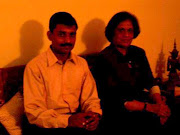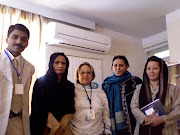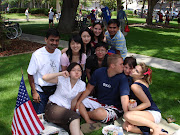The world is watching. And none of us – Tiger or anti-Tiger – can do without the world. Even if we can dispense with its aid and assistance we have to ensure that our enemies do not benefit from such support. The Tigers need the world not to ban them; legal sanctions could impede the free flow of cash from the Diaspora to the LTTE's coffers; national and regional proscriptions could also interfere with the excellent support work various Tiger front organisations scattered throughout the world are doing for the Sun God's Cause.
The Sri Lankan state needs economic and military assistance from friendly nations. Both the Lankan state and the anti-Tiger Tamils need the world to adopt a zero-tolerant policy towards the Tigers, leading ultimately to full UN sanctions. So whatever we may feel about the world, all of us need the world in our corner or at least not in our opponent’s corner.
And the world demands certain standards. OK there is no equal treatment here; quite a few Western countries are openly pro-LTTE, but there are others who are more balanced. True these countries do not practice what they preach. When something threatens their interests (even non-vital ones) they do all the things they are constantly telling us not to do. So there is a lot of hypocrisy and double standards, which can be downright exasperating at times. Unfortunately we need these countries more than they need us; we need them to back us; or, at the least, we need them not to back our opponents. That is the reality; therefore, hard as it is, we must accept it and try to make it work for us.
There is little doubt that the
So we have to remember that the world is watching – watching not only the Tigers but also the Lankan state and the anti-Tiger Tamils. If the Lankan state and the anti-Tiger Tamils indulge in or condone the kind of practices which are being cited as reasons to ban/impose sanctions on the LTTE, it is unlikely that the international community can be persuaded to adopt a harder line vis-à-vis the Tigers. After all, if all the major parties to the conflict are violating the basic rights of civilians, if all of them are acting anti-democratically, if the differences among them are not of quality but of quantity, not of nature but of degree, why should only one party be penalised?
The
The US State Department Human Rights Report for 2005 is critical of all three major parties to the Lankan conflict – the Tigers, the government of
There is much that the anti-Tiger Tamils can learn from the Tigers. My Way can be very beguiling, but it does not come without a price tag. The Tigers had their way in killing Rajiv Gandhi but that murder antagonised
The Tigers' total disregard for the basic rights and well being of their own people has cost them much. Ironically this is a fate that can easily befall their opponents, be it the Lankan state or the anti-Tiger Tamils. That is the warning contained in the US State Department Report and we can ignore it, gloss over it, only at our own peril.
The Tamil/Tiger struggle for separation would not have reached the heights it did if it was not for Black July. That mass scale and bloody violation of the basic rights of the Tamil people, including the right to life, by Sinhala mobs, as the Lankan state watched supinely, shocked
The Tigers' downfall began when they turned against fellow Tamils. Infrequently, such practices can be ignored; but not when they become the norm. And these were becoming the norm by mid to late 1990'. No one was spared; actual enemies, potential enemies, opponents, those who merely supported opponents, old and young, men and women, the famous and the unknown – they all met the same fate at the hands of the Sun God’s executioners. And in some parts of the world, gradually, the pennies began to drop; you cannot say you are the liberators of the Tamils and then follow a consistent policy of murdering every Tamil who disagree with you on any matter, in any way. Sooner or later your credibility will wear thin.
Why Oppose The Tigers?
Raison d’être This is a question that the anti-Tiger Tamils too must answer – why are they opposed to the LTTE? Is it simply because they want to get what the Tigers enjoy – power over Tamil people? Or is it because they disagree with some specific policy/s or activity/s of the Tigers? If so these should be spelt out and reflected in the policies and the conduct of the anti-Tiger Tamils.
If the anti-Tiger Tamils oppose the LTTE because of the LTTE’s anti-democratic nature they themselves must respect democracy; otherwise their arguments against the Tigers would sound hollow. If the anti-Tiger Tamils oppose the Tigers because the Tigers murder political opponents, they themselves must not murder or harass their own political opponents. If you are critical of the Tigers because they violate the fundamental rights of the Tamil people, then you cannot yourself violate the fundamental rights of the Tamil people. If you oppose the Tigers in name but follow their ways in deed, then neither the support of the Tamil people nor the recognition of the international community is likely to come your way.
The Tigers did impose and continue to impose terrible penalties on the Tamils who oppose them. Did that end the Tamil opposition to the Tigers? The Tigers’ violence did drive some people out of politics and some out of the country; but many others stayed and fought back. The prospect of being killed turned R Sampanthan into a willing tool of the Tigers, but hardened the resolution of V Anandasangaree to oppose the Tigers. The cold blooded murder of Rajini Rajasingham Thiranagama did not silence all of her colleagues; the courageous work carried out by the UTHR is symbolic of man’s Promethean spirit, his indomitable will to resist. The killing of Reggie Master did not discourage his brother or the other young men who are waging a dangerous, lonely but relentless battle in the East against the LTTE. Suresh Premachandran became a Tiger cipher but Douglas Devananda and D Siddartan did not. If violent intolerance is all that effective the anti-Tiger Tamils cannot exist. But they do.
And they should learn the lesson of their own example. Using violence to silence opponents is not only morally wrong; it does not work, even in the medium term. With violence you can silence some of your opponents all the time and all of your opponents some of the time; but not all of your opponents all the time.
Respect for democracy makes sense because in the final analysis it benefits not only the receiver but also the giver. When political pluralism prevails you have vociferous opponents but rarely bitter enemies, intent on mutual extermination. The unrelenting hostility that exists between the Tigers and the anti-Tiger Tamils is possible only in an anti-democratic context characterised by total intolerance. If the Tigers had a democratic and non-violent way to deal with dissidents, the Karuna rebellion would not have taken the trajectory it did. Despite all their sordid mistakes and repulsive antics the Southern parties have better ways of dealing with opposition and dissension. Because of the overall democratic context in which these parties operate the opponent of today can well become the supporter of tomorrow or vice versa. Ranil Wickremesinghe and any JVP parliamentarian can share a joke in the parliamentary lobby or sit together and converse amicably at a public function. There is definitely more than a degree of hypocrisy involved in such conduct but it is safer that way from a political and a societal point of view than the alternative.
The Tiger cannot be democratised. But to the degree possible the anti-Tiger Tamils must democratise themselves. A good place to begin would be by being unlike the LTTE. The Tiger way might seem a success but after three decades of fighting the LTTE does not have a liberated zone worth talking about. The Tiger way has also earned for the Tigers the undying enmity of a considerable number of Tamils. And whenever the anti-Tiger Tamils feel drawn to the path of total intolerance of the Tiger, the best antidote is to look at the nearest mirror.
Wednesday, March 15, 2006
SRI LANKAN TIGERS
Subscribe to:
Post Comments (Atom)












No comments:
Post a Comment